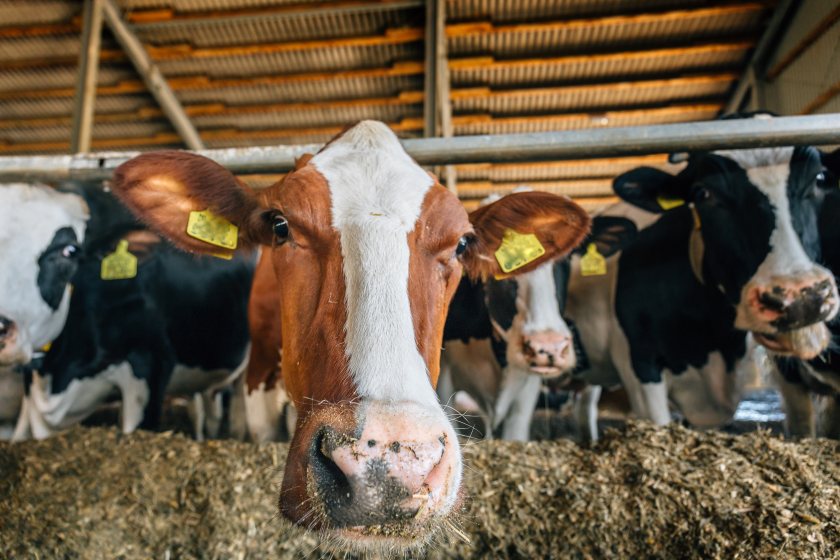NFU joins global push to rethink methane reporting ahead of COP30

The NFU has joined 32 leading agricultural organisations worldwide in calling for countries to adopt a split-gas approach to greenhouse gas (GHG) emissions reporting, arguing that current methods distort agriculture’s true impact on global warming.
Signed by 33 groups across 14 countries, the joint statement urges governments to follow the latest science and distinguish between short-lived gases such as methane and long-lived gases like carbon dioxide and nitrous oxide when reporting emissions.
The move comes ahead of the COP30 climate talks in Brazil, and reflects what the NFU described as “unprecedented global consensus” among farming organisations.
The NFU said a split-gas system would provide greater transparency and lead to more informed policymaking, allowing farmers to better understand and reduce their emissions.
“Accounting for agriculture’s greenhouse gas emissions is not straightforward, but our members are committed to reducing their emissions,” said NFU President Tom Bradshaw.
“A split-gas approach, which distinguishes between short-lived gases like methane and long-lived gases like carbon dioxide, will help producers have a clearer picture of their emissions, enabling better targeted mitigations and science-based policy decisions.”
Under the current system, known as GWP100, all greenhouse gases are converted into a single carbon dioxide equivalent. The coalition argues this “single-basket” approach obscures the very different warming behaviours of gases.
The letter warns that GWP100 “creates ambiguity by obscuring the warming impacts of the different gases”. While GWP100 works well for long-lived gases such as carbon dioxide and nitrous oxide, it “does not accurately represent the warming impact of short-lived GHGs such as biogenic methane.”
The signatories argue that long-lived gases must reach net zero, while short-lived gases like methane only need to decline gradually to have the same stabilising effect on global temperatures.
“This fundamental difference in behaviour needs to be recognised in climate policy, and adopting a split-gas approach is the most effective way to do so,” the statement says.
According to the NFU, split-gas reporting would also pave the way for warming-based metrics, offering a clearer understanding of how emissions trends affect temperature change over time.
The NFU’s call follows earlier endorsements from climate scientists and international research bodies. Farming leaders argue that recognising the distinct characteristics of biogenic methane will enable more science-based and fair climate targets for agriculture, which produces food while managing significant carbon sinks through grasslands and soils.
The letter also notes that a split-gas framework does not restrict policymakers’ ambition: “Ambitious mitigation approaches for both long-lived and short-lived GHGs are possible with a split-gas approach. Instead, it focuses policy on the warming impact of the GHGs and, therefore, on the warming impact between sectors.”
Some environmental campaigners, however, have warned that changing accounting systems must not become an excuse to delay deeper emissions cuts across the economy.
The NFU recently updated its position on emissions reporting, encouraging both government and the food industry to adopt dual accounting — using GWP100 for consistency while incorporating warming-based metrics for transparency.
Bradshaw said that while farmers are already working to reduce methane, continued government investment in technology and emissions-reduction tools will be vital.
“Being part of the solution to tackling climate change has always been a priority for British farmers, and methane reduction is a key part of that,” he said.
“We’ll continue working with government to ensure future policy reflects both the latest science and the realities on farm.”
The global coalition has asked governments preparing emissions commitments for COP30 to avoid “bundling methane and carbon dioxide together”, arguing that establishing separate pathways for short- and long-lived gases would allow more fair and achievable targets for agriculture.
“Establishing a separate pathway for short-lived emissions opens up a new conversation about what are ‘fair and achievable’ emissions reductions for global agriculture,” the letter concludes.
With climate negotiators set to meet in Brazil, farming groups say the shift to split-gas accounting could mark a pivotal moment in ensuring agricultural policy is rooted in both scientific accuracy and practical delivery.








